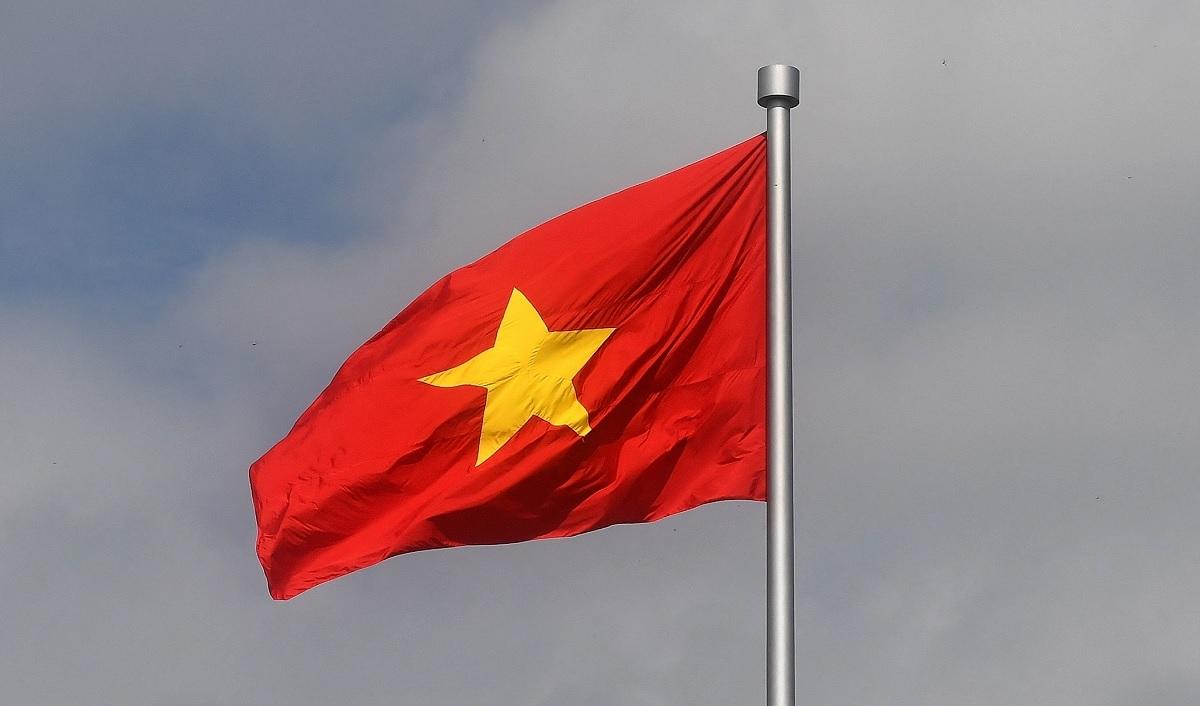Vietnam says it's willing to talk to PH about Manila's UN maritime claim

HANOI — Vietnam said on Friday it is willing to talk to the Philippines to seek measures that are in line with the interests of both countries, after Manila last week filed a claim with the UN to an extended continental shelf in the South China Sea.
"Vietnam once again affirms its sovereignty over the Hoang Sa and Truong Sa archipelagos in accordance with international law," foreign ministry spokesperson Pham Thu Hang said in a statement posted on a government website, referring to the Paracel and Spratly Islands.
Under the 1982 UN Convention on the Law of the Sea, Hang said, coastal states “have the right to determine their outer continental shelf boundaries in line with relevant provisions of the 1982 UNCLOS.”
However, when submitting an Extended Continental Shelf claim, Hang said coastal states “must respect the legal and legitimate rights and interests of other relevant coastal nations with opposite or adjacent coastlines."
Vietnam and the Philippines are among the claimants to parts of the South China Sea, a busy global maritime waterway almost all of which is claimed by China.
The Philippines last week filed a claim with the UN to an extended continental shelf in the South China Sea, where $3 trillion worth of trade passes annually, and believed to be rich in oil and natural gas deposits, as well as fish stocks.
In a statement, the Philippines' Foreign Affairs Department said the country, through the Philippine Mission to the UN in New York, on June 14 "submitted information to the United Nations (UN) Commission on the Limits of the Continental Shelf (CLCS) to register the country’s entitlement to an extended continental shelf (ECS) in the West Palawan Region in the West Philippine Sea/South China Sea."
The Philippines said its submission “does not prejudice discussions with relevant coastal states that may have legitimate extended continental shelf claims,” leaving the door open to negotiations with its neighbors in cases where their claims overlap.
Citing Article 76 of the UN Convention on the Law of the Sea (UNCLOS), Manila said "a coastal State such as the Philippines is entitled to establish the outer limits of its continental shelf comprising the seabed and subsoil of the submarine areas extending beyond 200 nautical miles (NM) but not to exceed 350 NM from the baselines from which the breadth of the territorial sea is measured."
CLCS is a body that governs the implementation of the UNCLOS on the establishment of the outer limits of the continental shelf beyond 200 nautical miles from the baselines.
'Ready to discuss'
Meanwhile, Vietnam state news VNA quoted Hang as saying that, "Vietnam asserts its full rights and interests under international law, particularly the 1982 UNCLOS, and stays ready to discuss with the Philippines to seek and achieve a solution that is mutually beneficial for both countries."
Manila’s move to extend its boundary farther into the South China Sea rejects China's massive claim over the potentially-rich waters, which covers the Spratlys, a chain of islands, rocks, reefs, atolls, and islets.
Hang maintained that Vietnam has sovereignty over the Paracels, which it calls Hoang Sa, and the Spratlys, called Truong Sa in Vietnamese, “in accordance with international law and legitimate rights over its territorial waters established in the 1982 UNCLOS.”
Carl Thayer, professor emeritus at the University of New South Wales, said Manila’s ECS submission “could form the basis of good faith negotiations to delineate overlapping claims on the sea bed.”
In 2009, Malaysia and Vietnam made a joint claim and Malaysia added a separate claim, which the Philippines objected.
The Rules of Procedure of the UN Commission on the Limits of the Continental Shelf (CLCS) prohibit it from making a determination until protesting claims are resolved.
“It is up to the parties concerned how to do so,” Thayer told GMA News Online. “It would be in the interests of Philippines if Malaysia sand Vietnam made their positions known as soon as possible. If there are overlapping claims, they could be resolved by good faith negotiations. This would take some time.”
This is the second time the Philippines has made a submission on an ECS entitlement. In April 2009, the Philippines made a partial submission on the Philippine Rise, which the CLCS validated in 2012, resulting in an additional 135,506 square kilometers of seabed area for the country.
Condemnation from countries
Hostilities in the South China Sea have escalated over the past several months, particularly between the Philippines and China, prompting serious concerns from several countries.
Chinese Coast Guard personnel have repeatedly assaulted the Philippine military and coast guard with powerful water cannons and used lasers to block them from conducting resupply missions for Filipino troops stationed at a dilapidated warship grounded at the Second Thomas Shoal (Ayungin Shoal), which Beijing claims as its own.
Last Monday, Chinese Coast Guard personnel, brandishing knives, axe and pointed sticks, repeatedly rammed then boarded Philippine Navy rubber boats, to stop them from delivering food supplies, firearms and other necessities to Filipino troops at the shoal. Seven Philippine Navy personnel were injured, including one who lost his right thumb.
Videos and photos released by the Philippine military showed tense confrontation at the shoal and Philippine boats slashed and navigational screen smashed. China seized two Philippine boats and several M4 rifles.
The latest Chinese action–the most violent to date–drew condemnations from the United States, Japan, Australia, Canada, United Kingdom, and the 28-member European Union, among others, but was met with silence by the Association of South East Asian Nations (ASEAN), of which the Philippines is a member.
Washington has warned that it has a treaty obligation to defend the Philippines from hostile armed attacks. — Reuters with Michaela del Callar/RSJ/VDV, GMA Integrated News




